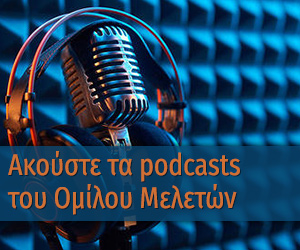1. Some time ago an old acquaintance informed me that he had joined a Gurdjieff group in London and was doing movements, exercises and had been given specific individual practices.
When I wrote that I was doing this probe into Gurdjieff and Ouspensky he replied that Ouspensky did not understand “the majestic scope of Gurdjieff’s message”. And when I asked what was this “majestic scope of Gurdjieff’s message”, he wrote that it was not words but practice.
Fair enough. Yes, Gurdjieff was undoubtedly practical in contrast with Ouspensky who was theoretical. But even Gurdjieff indulged his writer’s talent and produced some volumes, lengthy and difficult to read, in which he formulated his teaching. Others, however, like Ouspensky, Walker, Nicoll, Nott, did a more lucid and comprehensible job.
2. Apart from self-remembering, Gurdjieff laid emphasis on breathing and physical exercises – movements, postures and dancing.
People who knew him well write of the elasticity (or suppleness) of his movements. So Ouspensky: “there was an astonishing assurance and precision in all his movements” (261, In Search…). And Gurdjieff explained that he did the movements “in a special way with muscles relaxed” (p262).
Exercises with movements are mentioned again as part of the regime in Essentuki (p351) and, of course, at the Prieuré (p387).
These exercises had multiple effects – on breathing, on the function of the heart, on thinking etc.
3. In Views from the Real World there is a talk given at Prieuré, May 1923, entitled “The three powers – economy”. In this Gurdjieff describes man’s three powers as physical, psychic and moral. The first depends “on the structure and tissues” of the body. The second “on the thinking centre and the material it contains”, while “will” is one of its functions. The third “depends on education and heredity” (p159).
Here Gurdjieff points out that we spend too much energy in our movements or even in sitting and doing no movement: too much tension. We need to economise on the expenditure of energy by doing appropriate movements and by doing them properly (p160).
The “First Talk in Berlin”, Nov 1921 (p167) and a “Talk at Prieuré, Feb 1923 (p174) are also about movements, postures, tensions and expending and economising energy.
4. Most Yoga organisations today deal with this almost universal problem of tension. Some employ the various āsana of Haṭha-yoga, others simpler exercises and music to help people relax. Relaxation is the thing everywhere.
Gurdjieff’s exercises, described in his own and others’ publications are not really all that different and have the same aim.
Undoubtedly relaxation of tensions and preservation of energy or correct movements and the use of appropriate amount of energy in movements and postures, are very useful. But they can hardly be called “esoteric” or important in involution and in raising the level of being and consciousness.
The Yogasūtra, Patañjali’s Eightfold Yoga, has nothing on postures and movements and related exercises. Only 2.46 says sthirasūkham-āsanam ‘the posture [is, or, should be] firm and comfortable’. The next one says that this is achieved through relaxation of effort and immersion (samā-patti ‘entering, completion’) in the Infinite (ananta). The first means is the usual approach with physical exercises, the second uses mental and deeper (causal) energy to achieve relaxation and economy.
5. In the mid 1920’s, after the serious car accident and the closing down of the Institute at Prieuré, Gurdjieff composed many pieces for piano that are now well-known and often played. He had composed music in the 1910’s for his Ballet, Struggle of the Magicians.
His view of music is given by Ouspensky (p297, In Search…): “Objective music is all based on ‘inner octaves’… There can be such music as would freeze waters… as would kill a man instantaneously… [T]he destruction of the walls of Jericho… is precisely a legend of objective music… [N]ot only can [music] destroy but it can also build up… Orpheus used to impart knowledge by music… [In a long, drawn out] single note ‘inner octaves’ are going on all the time… inaudible to the ears but felt by the emotional centre”. These can control snakes but also people!
6. I have no reason to doubt that there could be such music.
However, I have not found in all the considerable literature about Gurdjieff and Ouspensky any instances of miraculous effects either from music or from the movements and postures.
I have personally listened many times to several pieces of Gurdjieff’s music and felt deeply moved but no more than by many pieces of Mozart or Vivaldi.
Helpful though all these are, they cannot of themselves raise the being or consciousness. They only give a short-lived emotional uplift, indicative of a higher state.


